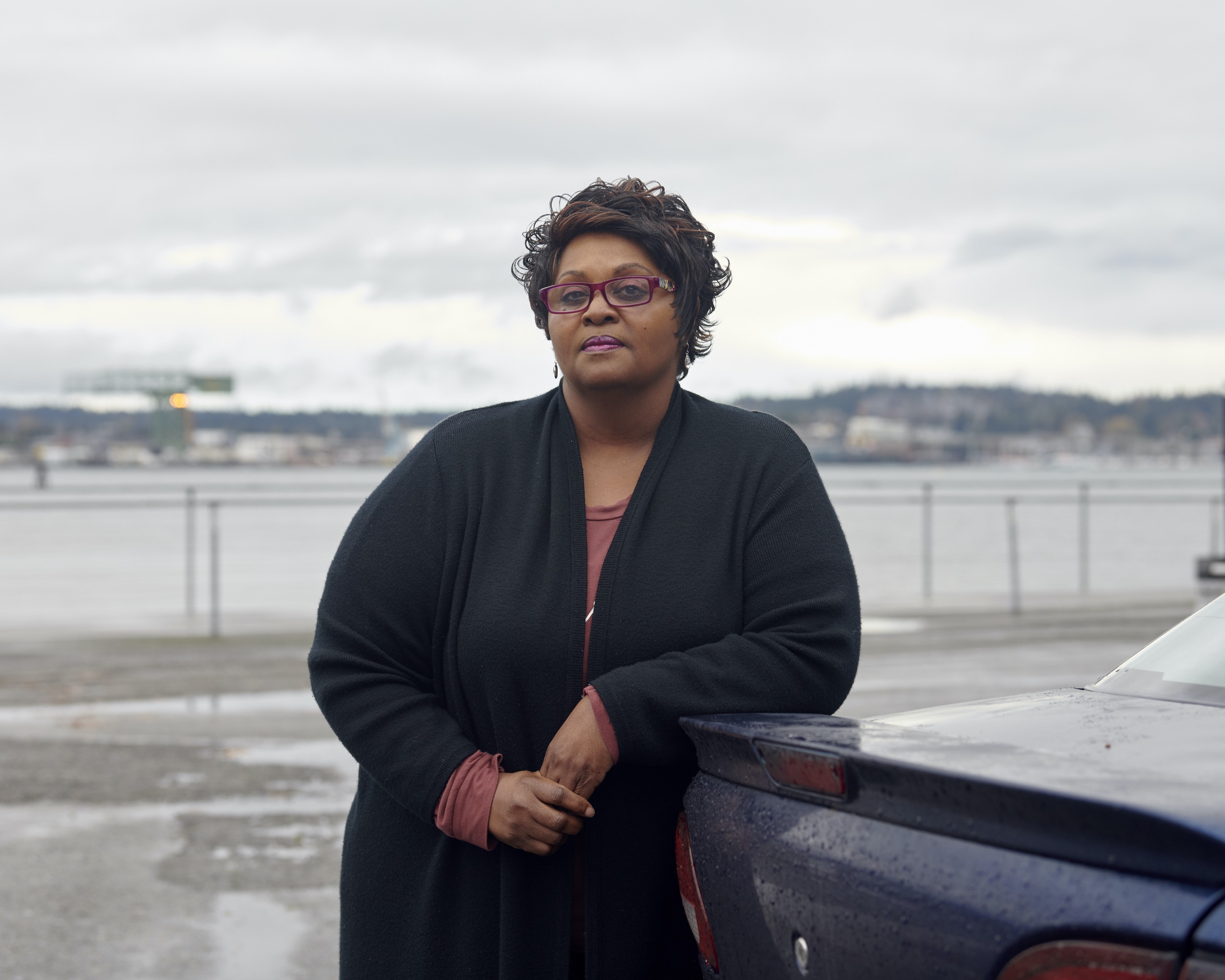After prison: ‘Pushing hope’ After prison: ‘Pushing hope’ After prison: ‘Pushing hope’
Hard times prepared Cynthia Brady to help others overcome chemical dependency. “A lot of times, the biggest issue with addiction is that we've lost the capacity to have compassion, even for ourselves,” she says.
By Omari Amili | Photos by Meron Menghistab | December 2020

This is part of our “After Prison” series of interviews by Omari Amili. Go here to see all of the stories.
Growing up in Pasco in the Tri-Cities region exposed Cynthia Brady to forms of racism that many on the west side of the mountains couldn’t imagine. However, if not for her upbringing, she would not have as much to offer her clients in her work as a Substance Use Disorder Professional. Before earning a degree from the UW in Ethnic, Gender & Labor Studies, Brady lived a life full of hardship that prepared her for a greater purpose.
Omari Amili: Do you feel like getting in trouble and going to drug court was the catalyst for you wanting to study Human Services at Olympic College?
Cynthia Brady: I believe so—getting into drug court, and seeing counselors that look like me. My first counselor in drug court was Black. My counselor when I went over to Seadrunar Recovery Center was Black. It was good to see some familiarity in that field. But I also prayed about it and I knew all my life that what I wanted to do was help people. I’ve been that type of person even when I was selling drugs. On one hand, I’m selling these drugs, but in the same breath, I’m turning around and taking the money and doing something for somebody else. I told my clients—and they always laugh when I say this—I said, “At one point in my life, I was sitting at the round table, pushing dope. Today I’m sitting at a different type of round table pushing hope.”
Amili: After learning your story and where you been, some of them, I know they’re like, ‘Man, if she can do this after what she’s been through, I can too.’
Brady: Yes, and that is exactly what I try to encourage them with. It is not just talking about abstinence. That is the focus people keep talking about. But no, you want to really teach them about how to live, how to learn, how to love, how to have compassion—and not just for other people, but for themselves. A lot of the time, the biggest issue with addiction is that we have lost the capacity to have compassion in most instances for ourselves. Another thing is that most clients that I have worked with have experienced childhood traumas. Those are the things the courts do not even look at—their humanity. What has happened to these people that has caused them to turn to drugs?

“No matter what is on the other side, there is always something more promising.”
Cynthia Brady
Amili: Did you earn an associate’s in Human Services or did you transfer before earning it?
Brady: I earned an Associate in Arts-DTA, a certificate in Chemical Dependency Professional, a high school diploma, a certificate in Human Services-Case Aide, a certificate in Manufacturing Technology. I was an Honor Graduate on the Dean’s List.
Amili: What was your bachelor’s degree in?
Brady: It was in Ethnic, Gender & Labor Studies. I took a lot of history. On people of every nationality, not just Black. I learned about Indigenous people, Europeans, Brazilians etc. One of the biggest things that I have learned was the effect the United States of America has had on every country. What country have we not had an impact on?
Amili: If there’s a young girl and she’s going to go through some things like what you went through, what is one lesson that you’ve learned that you would want to share?
Brady: Change is inevitable. We change whether we want to grow or not. And we are going to keep changing, but stay resilient enough to come through it and keep going. No matter what is on the other side there is always something more promising. A lot of the time we look at things as being bad, but there is a little bit of good and bad in everybody.
I would probably share the story about what an Indian Chief told his grandson about a battle that goes on inside of people. There are two wolves inside us all. One is evil. It is anger, envy, jealousy, sorrow, regret, greed, arrogance, self-pity, guilt, resentment, inferiority, lies, false pride, superiority, and ego. The other one is good. It is joy, peace, love, hope, serenity, humility, kindness, benevolence, empathy, generosity, truth, compassion and faith. I would ask her to ask me which wolf wins? And I would answer her with, “The One You Feed the Most.” If a person can see or feel that their spirit is full of these negative characteristics, they will learn that it will only serve them in a negative way.
I had to let go of a lot of hatred, pain and things that were going on inside of me. I had to let go of them because they were not serving me anything good. I did have a lot of anger with the judicial system, with police officers, with racist and prejudiced people. And most of it stemmed from what I had seen or experienced, but it was not benefitting me. The only thing a person can do to address change is to be the change that they want to see.